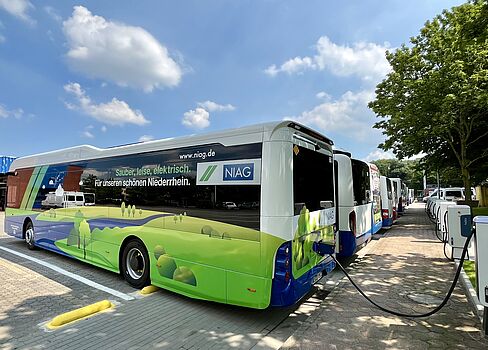PSIngo controls cloud-based charging processes and supports CO2 reduction
Berlin, November 25, 2021 - The Swiss Zugerland Verkehrsbetriebe AG (ZVB) has successfully tested the first active charging management system at its depot in Zug. The foundation is the cloud-based and autonomous system PSIngo (Intelligent Grid Operator) from the PSI GridConnect GmbH for the flexible control of charging processes. The ZVB fleet is to comprise twelve e-buses by the end of 2022 and the line operation should be CO2-neutral by 2035.
As part of the project, PSIngo as a charging manager demonstrates how established solutions from the energy industry can be adapted and new use cases can provide specific requirements. The focus is on optimizing charging processes while taking existing power distribution and area network structures into account.
Taking into account the successive electrification strategy, the PSI system can be used cost-efficiently right from the start. In particular, the exploitation of flexibilities for efficient use of the charging infrastructure while ensuring depot operations is one of the greatest challenges for successively converted depots. This is defined by the existing energy infrastructure and the grid connection provided by the upstream grid operator.
In addition to years of experience in the analysis and digitalization of electrical supply and area networks, PSI offers a comprehensive concept for the efficient and simplistic electrification of public transport. With modular and flexible software products, customers benefit from a unique and specific solution.
Zugerland Verkehrsbetriebe AG is a transport company based in Zug in Switzerland. With 400 employees, ZVB operates around 120 buses, of which four are currently E-normal buses. In 2022, eight E-articulated buses will be added. On a normal working day, ZVB transports an average of 65,000 passengers in the canton of Zug and the surrounding areas.
The PSI Group develops its own software products for optimizing the flow of energy and materials for utilities (energy grids, energy trading, public transport) and industry (metals production, automotive, mechanical engineering, logistics). The industry-specific products, which are built from standard components, are sold both directly and via the multi-cloud PSI App Store and can also be customized by customers and partners themselves. PSI was founded in 1969 and employs nearly 2,200 people worldwide.



